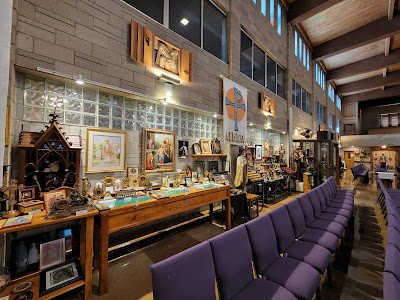It is not enough to simply receive the Sacrament of Holy Communion and return to our pews as if nothing has happened. We must constantly live with gratitude in our hearts, especially in the 15 minutes after receiving Communion when the Lord’s Real Presence is still within our bodies.
Pope St. Pius X gives the reason behind the necessity of thanksgiving after having received Our Divine Savior: “Since the sacraments of the New Law ... produce a greater effect in proportion as the dispositions of the recipient are better, therefore, one should take care that Holy Communion be...followed by an appropriate thanksgiving, according to each one’s strength, circumstances, and duties.”
Priests use a book called the Roman Ritual, which gives directions to priests and faithful alike concerning how to correctly receive the Sacraments. And it includes this important part on the Act of Thanksgiving After Holy Communion:
“Moreover, the communicants should be warned not to leave church right after receiving, nor to engage in idle conversation nor to violate custody of the eyes, and neither to begin at once the reading of prayers from a book nor to expectorate, lest the Sacred Species fall from the mouth. “Rather, as befits devotion they should spend some time in mental prayer, thanking God for this singular favor and at the same time for the Savior’s sacred Passion, in memory of which this mystery is celebrated and consummated."
Thus, after Holy Communion, we need to speak with Our Lord personally and reflect on the depth of His love for us.
Pope Pius XII in his encyclical on the Sacred Liturgy published in 1947 similarly said:
“Such personal colloquies are very necessary that we may all enjoy more fully the supernatural treasures that are contained in the Eucharist and, according to our means, share them with others, so that Christ Our Lord may exert the greatest possible influence on the souls of all”.
The Holy Father continued:
“When the Mass is over...the person who has received Holy Communion is not thereby freed from his duty of thanksgiving; rather it is most becoming that, when the Mass is finished, the person who has received the Eucharist should recollect himself, and in intimate union with the Divine Master hold loving and fruitful converse with Him. Hence they have departed from the straight way of truth who, adhering to the letter rather than the sense, assert and teach that when the Mass has ended, no such thanksgiving should be added, not only because the Mass is itself a thanksgiving, but also because this pertains to a private and personal act of piety and not to the good of the community.”
Therefore, the necessity of making Acts of Thanksgiving is not just for us as individuals, but also for the good of the Church. And this allows us to perform our duties of charity towards our fellow men.


.jpg)
.jpg)
.jpeg)






























